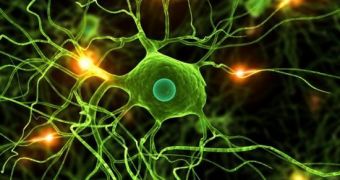In the aftermath of several experiments carried out on mice, it is being said that, psychological turmoil and other similar issues aside, learning causes physical damage to the brain.
More precisely, a team of researchers has found that, whenever these laboratory mice are made to process information at a fairly rapid pace, the cells in their brains suffer DNA damage.
The physical damage produced to the mice's brains in this manner is rather quick in healing, as long as the rodents are also in good health.
However, several genetically engineered mice, whose brain make-up mimics that of Alzheimer's patients, suffer more brain damage and therefore have a rather difficult time healing.
According to Live Science, it is the researchers' belief that most living creatures experience such DNA damage whenever their brains become active, but that those who develop certain brain disorders simply lack the ability to heal.
“DNA comes in double strands, and has the shape of a twisted ladder. Breaks in one strand, in one rail of the ladder, occur quite frequently, but breaking both takes quite a bit of damage and, in the brain, was thought to happen mostly in the context of disease,” argued researcher Lennart Mucke.
“It is both novel and intriguing, [the] team's finding that the accumulation and repair of DSBs [double-strand breaks] may be part of normal learning,” further argued specialist Fred Gage, who did not take part in these investigations.
What is interesting is that the mice found to suffer such DNA damage in their brain cells were not even made to strain their brain beyond its normal limitations.
As the same source informs us, all they were made to do was explore new environments, and make head and tail of smells and objects they were unfamiliar with.
Because of this, the scientists suspect that DNA damage within the brain cells is mandatory in order for thinking, learning and memory to be able to manifest themselves.

 14 DAY TRIAL //
14 DAY TRIAL //